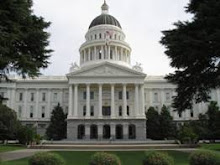DONNING AND DOFFING OF UNIFORMS: COMPENSABLE OR NOT?
The number of lawsuits filed by employees seeking overtime pay, pursuant to the Fair Labor Standards Act (FLSA), for pre and post shift time is continuing to grow, including those cases initiated by peace officers. A variety of peace officer groups who are required to wear uniforms or special protective or safety gear have lawsuits pending because public employers do not provide compensation for time spent putting on (donning) or taking off (doffing) such gear prior to or at the end of work shifts. To date, six district courts have addressed the issue of compensability for donning and doffing of police uniforms in extensive written opinions, with no clear consensus on the issue.
In the case of Martin v. City of Richmond, the district court granted the City's motion for summary judgment regarding the donning and doffing of uniforms, finding such time was not compensable under the FLSA. The Martin court found, however, time spent donning and doffing protective gear, "integral and indispensable" to the work performed, may be compensable under the FLSA, depending of whether such tasks were performed at work or at home, and depending on how much time was incurred.
In the case of Abbe v. City of San Diego, the district court sided completely with the employer, ruling the donning and doffing of both the uniform and protective gear was not compensable because neither the law, the employer's policies, nor the nature of the work required the donning and doffing to be done at work, and if done at home, it was not compensable under the FLSA.
In the case of Vucinich, Maciel v. City of Los Angeles, the district court agreed with the Martin court and ruled that while donning and doffing of uniforms was not compensable, donning and doffing of protective gear was integral and indispensable to the officers' work and was therefore compensable under the FLSA. Unlike the Martin and Abbe courts, the Vucinich, Maciel court did not engage in any analysis of donning and doffing protective gear at home versus at work in finding such time compensable. Following the summary judgment ruling in 2007, this case became Maciel v. City of LosAngeles and went to a bench trial, resulting in a verdict which upheld the summary judgment ruling time spent donning and doffing protective gear was compensable under the FLSA.
In the case of Lemmon v. City of San Leandro, the district court disagreed with the Martin, Abbe, and Vucinich/Maciel cases, and ruled entirely for the peace officers, holding that donning and doffing of both the uniform and special protective gear was compensable under the FLSA. The Lemmon court stated "there is no distinction between the uniform and the equipment because the police uniform, with all of its component parts, functions as an integrated whole that serves as the officer's survival suit." In addition, in direct opposition to the Martin and Abbe decisions, the Lemmon court ruled the compensability of time spent donning and doffing of the uniform and special protective gear did not depend on whether such activity occurred at the employer's premises.
In the matter of Dager v. City of Phoenix, the district court ruled the City did not have an obligation to pay its police officers for the time spent donning and doffing their police uniforms and gear because only those employees actually required to change at work could claim the time spent donning and doffing was compensable, and the uniform itself was not "necessary" to the performance of police work. Finally, in the matter of Bamonte v. City of Mesa, the district trial court granted summary judgment in favor of the City on the officer's donning and offing claims.
The Abbe, Lemmon, and Bamonte summary judgment rulings and the Maciel bench trial decision are now on appeal to the Ninth Circuit Court of Appeal. When the Ninth Circuit decision is published, the application of the FLSA to pre and post shift donning and doffing time will likely become much clearer for California peace officers. Until then, the contrary district court decisions leave public employers unsettled.
Although these cases arise in the context of police departments, they certainly have the potential for far wider reach. If any federal appellate court holds time spent changing in and out of a uniform can be compensable regardless of where it takes place, employers that require employees to wear a uniform on the job can expect a significant number of similar claims to be made by employees in a variety of industries.
Showing posts with label Wage and Hour. Show all posts
Showing posts with label Wage and Hour. Show all posts
Friday, July 24, 2009
Thursday, April 02, 2009
PARTICIPANTS IN A TIP POOL NEED NOT BE RESTRICTED TO STAFF WHO PROVIDED DIRECT TABLE SERVICE TO PATRONS
On March 27, 2009, the Second Appellate District, California Court of Appeal, affirmed a ruling in favor of Reins International California Inc., holding participants in tip pooling need not be restricted to staff who provide direct table service to patrons.
The Los Angeles County Superior Court case was filed in 2007 by waiter Brad Etheridge on behalf of a class of similar Reins' servers. Etheridge alleged the restaurant's tip-pooling practice violated the California Labor Code and constituted an unfair business practice because it requiresd waiters to give a portion of guest tips to bartenders, dishwashers, and other kitchen staff, who provide no direct table service to customers. Reins, which operates several restaurants in California, won dismissal of the suit after arguing to the trial court that state law did not limit tip sharing to workers who provide direct table service and that a tip pool could include any number of employees, so long as the tips are not shared with management. Etheridge appealed, arguing the appellate court's 1990 Leighton v. Old Heidelberg Ltd. ruling foreclosed a tip pool that included employees not providing "direct table service."
The appeals court majority found Etheridge's reading of Leighton as "too narrow," holding, "[t]he Leighton court concluded that a mandatory tip pool is supported by 'common sense and fairness and protects the public, the employees, and the restaurant employer.' These policy reasons extend to mandatory tip pools which include employees who do not provide direct table service, but participate in the chain of service."
The court's opinion was not unanimous, with one dissenting judge holding that any employer-mandated tip-sharing policy directly violated California's labor laws, finding, "[b]ecause Section 351 (of the Labor Code) guarantees that the gratuity is the 'sole' property of the employee or employees for whom it was left, Section 351 clearly prohibits the employer from appropriating any portion of the server's gratuity and diverting it to other employees." Judge P.J. Klein said he could not agree with the majority in their decision, stating that, "[t]he instant majority's extension of Leighton to include in the tip pool any employees who 'contribute to a patron's service' or who 'participate in the chain of service' is unwarranted and simply compounds the error made by the Leighton majority in the first instance," and added that the state's Supreme Court should weigh in on the matter and clarify the issue.
The Los Angeles County Superior Court case was filed in 2007 by waiter Brad Etheridge on behalf of a class of similar Reins' servers. Etheridge alleged the restaurant's tip-pooling practice violated the California Labor Code and constituted an unfair business practice because it requiresd waiters to give a portion of guest tips to bartenders, dishwashers, and other kitchen staff, who provide no direct table service to customers. Reins, which operates several restaurants in California, won dismissal of the suit after arguing to the trial court that state law did not limit tip sharing to workers who provide direct table service and that a tip pool could include any number of employees, so long as the tips are not shared with management. Etheridge appealed, arguing the appellate court's 1990 Leighton v. Old Heidelberg Ltd. ruling foreclosed a tip pool that included employees not providing "direct table service."
The appeals court majority found Etheridge's reading of Leighton as "too narrow," holding, "[t]he Leighton court concluded that a mandatory tip pool is supported by 'common sense and fairness and protects the public, the employees, and the restaurant employer.' These policy reasons extend to mandatory tip pools which include employees who do not provide direct table service, but participate in the chain of service."
The court's opinion was not unanimous, with one dissenting judge holding that any employer-mandated tip-sharing policy directly violated California's labor laws, finding, "[b]ecause Section 351 (of the Labor Code) guarantees that the gratuity is the 'sole' property of the employee or employees for whom it was left, Section 351 clearly prohibits the employer from appropriating any portion of the server's gratuity and diverting it to other employees." Judge P.J. Klein said he could not agree with the majority in their decision, stating that, "[t]he instant majority's extension of Leighton to include in the tip pool any employees who 'contribute to a patron's service' or who 'participate in the chain of service' is unwarranted and simply compounds the error made by the Leighton majority in the first instance," and added that the state's Supreme Court should weigh in on the matter and clarify the issue.
Tuesday, November 11, 2008
Is the Indigestion Caused By California's Meal and Rest Period Requirements Nearing an End?; California Court of Appeals Clarifies Meal and Rest Period Requirements
California employers have been under siege from plaintiffs claiming massive wage & hour violations. In a rare positive wage & hour decision for employers, a California Court of Appeal has clarified the meal and rest period requirements for California employees. In addition, the same Court significantly narrowed a plaintiff's ability to certify a putative class action based upon alleged meal and rest period violations.
In Brinker Restaurant Corporation et al. v. Superior Court (7/22/08), several waiters/waitresses brought a putative class action against Brinker for alleged meal and rest period violations, as well as for unpaid hours worked. The servers claimed Brinker failed to absolutely ensure employees received their meal and rest periods. The servers further claimed that Brinker's policy of requiring/permitting employees to take a meal period near the start of their shift, and then requiring the employee to continue working for five or more hours without an additional meal period violated the Labor Code. Finally, the employees claimed that they worked off-the-clock without compensation. Based upon the alleged "across the board" violations, the employees sought class certification of their claims. Brinker's position was that it provides employees with an opportunity to take an appropriate meal and rest period at some point during their shift.
The Court of Appeal rejected the employees' contentions and held that employers need only provide, not ensure, that meal and rest periods are taken. The court explained that the language in section 512 of the California Labor Code means that employers need only offer meal breaks and do not need to police their employees to ensure that meal breaks are actually taken. However, the court did provide examples of how an employer would be non-compliant, such as when an employer did not schedule meal periods, did not have a policy authorizing meal periods, or pressured employees to skip meals. The court noted that if an employer knew that employees were working while eating, and did not take steps to address the situation, the employer would be depriving employees of their breaks and therefore would have failed to "provide" meal periods. The court also expressly rejected the concept of a "rolling 5-hour meal period" advanced by the plaintiffs, holding that employers are not required to provide a meal period for every five consecutive hours worked. An employer need only provide a 30-minute break once at any time during a work period that does not exceed ten hours.In addition, while addressing the class certification issues, the Court of Appeal determined that "because the rest and meal breaks need only be 'made available' and not 'ensured,' individual issues predominate" over class claims as each putative class member's situation must be determined on a case-by-case basis. Thus, based upon the evidence presented to the trial court, the Court of Appeal determined that the employees' claims were not amenable to class treatment. The holding should, in effect, make it more difficult to certify class-wide claims for meal period, rest period, and overtime violations.
Going Forward
The Brinker decision is likely to be appealed, finally placing the issue before the California Supreme Court. Currently, the decision provides California employers with some flexibility in scheduling and permitting employees to take their meal and rest periods. In addition, where the court focused on the Company's policies regarding meal & rest periods, the decision highlights the importance of employers' policies and procedures regarding their wage and hour practices.
[UPDATE: THE CALIFORNIA SUPREME COURT HAS ACCEPTED REVIEW OF THIS DECISION. EMPLOYERS SHOULD SIT TIGHT UNTIL THE CALIFORNIA SUPREME COURT MAKES ITS RULING.]
California employers have been under siege from plaintiffs claiming massive wage & hour violations. In a rare positive wage & hour decision for employers, a California Court of Appeal has clarified the meal and rest period requirements for California employees. In addition, the same Court significantly narrowed a plaintiff's ability to certify a putative class action based upon alleged meal and rest period violations.
In Brinker Restaurant Corporation et al. v. Superior Court (7/22/08), several waiters/waitresses brought a putative class action against Brinker for alleged meal and rest period violations, as well as for unpaid hours worked. The servers claimed Brinker failed to absolutely ensure employees received their meal and rest periods. The servers further claimed that Brinker's policy of requiring/permitting employees to take a meal period near the start of their shift, and then requiring the employee to continue working for five or more hours without an additional meal period violated the Labor Code. Finally, the employees claimed that they worked off-the-clock without compensation. Based upon the alleged "across the board" violations, the employees sought class certification of their claims. Brinker's position was that it provides employees with an opportunity to take an appropriate meal and rest period at some point during their shift.
The Court of Appeal rejected the employees' contentions and held that employers need only provide, not ensure, that meal and rest periods are taken. The court explained that the language in section 512 of the California Labor Code means that employers need only offer meal breaks and do not need to police their employees to ensure that meal breaks are actually taken. However, the court did provide examples of how an employer would be non-compliant, such as when an employer did not schedule meal periods, did not have a policy authorizing meal periods, or pressured employees to skip meals. The court noted that if an employer knew that employees were working while eating, and did not take steps to address the situation, the employer would be depriving employees of their breaks and therefore would have failed to "provide" meal periods. The court also expressly rejected the concept of a "rolling 5-hour meal period" advanced by the plaintiffs, holding that employers are not required to provide a meal period for every five consecutive hours worked. An employer need only provide a 30-minute break once at any time during a work period that does not exceed ten hours.In addition, while addressing the class certification issues, the Court of Appeal determined that "because the rest and meal breaks need only be 'made available' and not 'ensured,' individual issues predominate" over class claims as each putative class member's situation must be determined on a case-by-case basis. Thus, based upon the evidence presented to the trial court, the Court of Appeal determined that the employees' claims were not amenable to class treatment. The holding should, in effect, make it more difficult to certify class-wide claims for meal period, rest period, and overtime violations.
Going Forward
The Brinker decision is likely to be appealed, finally placing the issue before the California Supreme Court. Currently, the decision provides California employers with some flexibility in scheduling and permitting employees to take their meal and rest periods. In addition, where the court focused on the Company's policies regarding meal & rest periods, the decision highlights the importance of employers' policies and procedures regarding their wage and hour practices.
[UPDATE: THE CALIFORNIA SUPREME COURT HAS ACCEPTED REVIEW OF THIS DECISION. EMPLOYERS SHOULD SIT TIGHT UNTIL THE CALIFORNIA SUPREME COURT MAKES ITS RULING.]
Tuesday, February 27, 2007
The U.S. Department of Labor Determines Restaurants Cannot Deduct for Uniform Cleaning
The United Stated Department of Labor (“DOL”) recently issued a Wage and Hour Opinion Letter, FLSA 2006-21, (June 9, 2006), prohibiting restaurant owners from deducting the costs associated with laundering uniforms from staffs’ wages. The opinion letter stated that “no portion of an employee’s tips may be kicked back to the employer to cover the cost of uniform laundering,” and “even if the tips actually received exceed the maximum tip credit the employer needs to claim toward payment of the minimum wage, these excess tips are not deemed to be wages for purposes of the FLSA.”
The DOL further stated “A policy that employees must wear clean uniforms while on duty and the assurance that servers will always appear in clean, freshly pressed uniform tops, is primarily a convenience and benefit to the employer. As such, the cost of the laundering and pressing of the garment is a cost of doing business that may not be imposed on the employees if doing so would reduce their wages below minimum wage.”
While the DOL Opinion Letter specifically applies to restaurants, there is likely no reason the same standard would not be applied by the government to different work environments, such as security personnel, maintenance workers, or other similar occupations. Employers should be mindful to review their policies regarding uniforms in light of the DOL’s latest Opinion Letter.
The United Stated Department of Labor (“DOL”) recently issued a Wage and Hour Opinion Letter, FLSA 2006-21, (June 9, 2006), prohibiting restaurant owners from deducting the costs associated with laundering uniforms from staffs’ wages. The opinion letter stated that “no portion of an employee’s tips may be kicked back to the employer to cover the cost of uniform laundering,” and “even if the tips actually received exceed the maximum tip credit the employer needs to claim toward payment of the minimum wage, these excess tips are not deemed to be wages for purposes of the FLSA.”
The DOL further stated “A policy that employees must wear clean uniforms while on duty and the assurance that servers will always appear in clean, freshly pressed uniform tops, is primarily a convenience and benefit to the employer. As such, the cost of the laundering and pressing of the garment is a cost of doing business that may not be imposed on the employees if doing so would reduce their wages below minimum wage.”
While the DOL Opinion Letter specifically applies to restaurants, there is likely no reason the same standard would not be applied by the government to different work environments, such as security personnel, maintenance workers, or other similar occupations. Employers should be mindful to review their policies regarding uniforms in light of the DOL’s latest Opinion Letter.
Wage & Hour: Companies not liable for subcontractor’s failure to pay correct wages
On April 18, 2006, the California Court of Appeal in Violante v. Communities Southwest Dev. & Constr. Co. held that employees of subcontractors on public works projects may not sue parties other than their direct employer for alleged violations of California prevailing wage laws. There, construction workers alleged thousands of workers “were paid less than prevailing wages as required by California Labor Code section 1770 et seq. for public works projects." The class action complaint alleged violations of Labor Code section 1774, breach of contract and unfair business practices against numerous defendants, including the contractor that hired plaintiffs’ employer, a subcontractor on the project.
The Court found that "Plaintiffs have a right of action against the subcontractor, their direct employer . . . . But the Labor Code nowhere requires the contractor to pay prevailing wages to a subcontractor’s employee or permits a subcontractor’s employee to sue the prime contractor when the subcontractor fails to pay prevailing wages." Also, where there is no violation of the underlying prevailing wage law, the Court ruled plaintiffs could not maintain unfair business practices or unfair competition claims under the Business and Professions Code.
Liability for prevailing wages likely will continue to be a very hot legal issue for developers and contractors. For years, non-union contractors have been under siege with lawsuits initiated by Unions in an attempt to force recognition through settlement, rather than through organization. One unsettled question is how this opinion will affect California Labor Code section 2810, which prohibits contractors from entering into any contract that it knows or should have known does not include sufficient funds to allow the subcontractor to comply with all applicable employment law provisions.
Our attorneys handle numerous wage & hour cases throughout Northern California. While small, our highly skilled attorneys effectively and efficiently defend class actions and invidual claims for wages, meal & rest periods, overtime, etc. We are highly regarded and routinely considered by some of the nation's and region's largest employers to defend against these claims.
On April 18, 2006, the California Court of Appeal in Violante v. Communities Southwest Dev. & Constr. Co. held that employees of subcontractors on public works projects may not sue parties other than their direct employer for alleged violations of California prevailing wage laws. There, construction workers alleged thousands of workers “were paid less than prevailing wages as required by California Labor Code section 1770 et seq. for public works projects." The class action complaint alleged violations of Labor Code section 1774, breach of contract and unfair business practices against numerous defendants, including the contractor that hired plaintiffs’ employer, a subcontractor on the project.
The Court found that "Plaintiffs have a right of action against the subcontractor, their direct employer . . . . But the Labor Code nowhere requires the contractor to pay prevailing wages to a subcontractor’s employee or permits a subcontractor’s employee to sue the prime contractor when the subcontractor fails to pay prevailing wages." Also, where there is no violation of the underlying prevailing wage law, the Court ruled plaintiffs could not maintain unfair business practices or unfair competition claims under the Business and Professions Code.
Liability for prevailing wages likely will continue to be a very hot legal issue for developers and contractors. For years, non-union contractors have been under siege with lawsuits initiated by Unions in an attempt to force recognition through settlement, rather than through organization. One unsettled question is how this opinion will affect California Labor Code section 2810, which prohibits contractors from entering into any contract that it knows or should have known does not include sufficient funds to allow the subcontractor to comply with all applicable employment law provisions.
Our attorneys handle numerous wage & hour cases throughout Northern California. While small, our highly skilled attorneys effectively and efficiently defend class actions and invidual claims for wages, meal & rest periods, overtime, etc. We are highly regarded and routinely considered by some of the nation's and region's largest employers to defend against these claims.
Subscribe to:
Posts (Atom)








